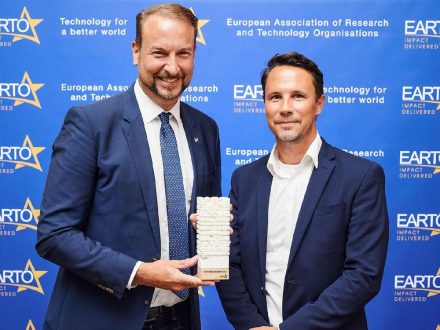Fresenius Medical Care Achieves Key AI Milestone With First-Phase Completion of Largest Global Dialysis Clinical Dataset
• Powerful Cloud-Based Data Asset to Drive Improvements in Care Quality and Patient Outcomes as the Largest Multinational, Longitudinal Database of its kind
• Achievement Part of Company’s Long-Term AI Strategy and Ongoing Digital Transformation Efforts
Fresenius Medical Care, the world’s leading provider of products and services for individuals with renal diseases, today announced the phase-one completion of the company’s first anonymized global dialysis dataset—coined the Apollo database project—the foundation of the company’s long-term AI aspirations. Intended to advance patient care quality and outcomes by making kidney disease care more personalized and precise, the database provides a highly sophisticated view into the clinical care provided to more than 540 thousand dialysis patients, the largest multinational, longitudinal database of its kind.
“Artificial intelligence is only as good as the data that powers it,” says Frank Maddux, MD, Global Chief Medical Officer and Member of the Management Board. “The Apollo database is not only helping advance our understanding of kidney disease and dialysis therapies through data-driven insights. It also provides data that is high quality, relevant and timely, three vital data attributes that are crucial to achieving AI aspirations at scale.”
Phase one of the Apollo Database project harmonizes data from across the company’s global clinical systems into the cloud, aggregating data from 40 countries across 6 continents on more than 350 patient treatment parameters. It includes information from more than 540 thousand dialysis patients, more than 140 million dialysis treatments, and more than 34 million laboratory assessments.
The database provides full anonymization of data and a streamlined pathway for global analytics all while adhering to the complex set of global, regional and local privacy requirements, including HIPAA and GDPR.
“The data created across Fresenius Medical Care’s global clinical footprint is unmatched in its breadth and depth, and is one of the company’s greatest competitive advantages,” said Stuart McGuigan, Global Chief Information Officer of Fresenius Medical Care. “Reimagining our digital infrastructure has been a key part of our organizational transformation, and the achievement of the Apollo Database project is an important benchmark in not just our digital transformation, but in our long-term AI strategy.”
The Apollo Database project will be featured in numerous research presentations by Fresenius Medical Care experts at this year’s American Society of Nephrology Kidney Week conference—one of the world’s largest and most influential gatherings of kidney disease physicians and experts—happening November 2-5 in Philadelphia, Pennsylvania in the U.S.
“Dialysis care generates a large amount of data that can be used for secondary purposes, but multinational datasets are scarce due to the fundamental need for adherence to varying complex data protection regulations around the world, as well as the challenges in harmonization of data from different clinical systems,” said Len Usvyat, PhD, Head of Clinical Advanced Analytics for Fresenius Medical Care. “This important data tool increases the speed and robustness of the company’s analytical capabilities and provides greater consistency in generating data-driven clinical insights. The knowledge gained from these efforts have the potential to improve not just the practice of medicine, but more importantly the quality of life for people with kidney disease.”
The project is coordinated by the Global Medical Office in collaboration with the company’s Digital Technology & Innovation, Care Delivery and Care Enablement teams. The project is already powering more than 15 clinical improvement projects, such as a global feasibility assessment of the expanded use of an Anemia Control Model, an artificial intelligence model being used in many countries to optimize use of erythropoietin stimulating agents and iron therapies in dialysis patients.
Disclaimer:
This release contains forward-looking statements that are subject to various risks and uncertainties. Actual results could differ materially from those described in these forward-looking statements due to various factors, including, but not limited to, changes in business, economic and competitive conditions, legal changes, regulatory approvals, impacts related to the COVID-19 pandemic results of clinical studies, foreign exchange rate fluctuations, uncertainties in litigation or investigative proceedings, and the availability of financing. These and other risks and uncertainties are detailed in Fresenius Medical Care AG & Co. KGaA’s reports filed with the U.S. Securities and Exchange Commission. Fresenius Medical Care AG & Co. KGaA does not undertake any responsibility to update the forward-looking statements in this release.
Fresenius Medical Care is the world’s leading provider of products and services for individuals with renal diseases of which around 3.9 million patients worldwide regularly undergo dialysis treatment. Through its network of 4,050 dialysis clinics, Fresenius Medical Care provides dialysis treatments for approximately 344,000 patients around the globe. Fresenius Medical Care is also the leading provider of dialysis products such as dialysis machines or dialyzers. Fresenius Medical Care is listed on the Frankfurt Stock Exchange (FME) and on the New York Stock Exchange (FMS).
For more information visit the Company’s website at www.freseniusmedicalcare.com.
Fresenius Medical Care AG & Co. KGaA
Else-Kröner-Straße 1
61352 Bad Homburg
Telefon: +49 (6172) 609-0
Telefax: +49 (6172) 609-2301
http://www.fmc-ag.de
Telefon: +1 (800) 723-2384
E-Mail: media@freseniusmedicalcare.com
Telefon: +49 (6172) 609-2601
E-Mail: dominik.heger@fmc-ag.com
![]()



